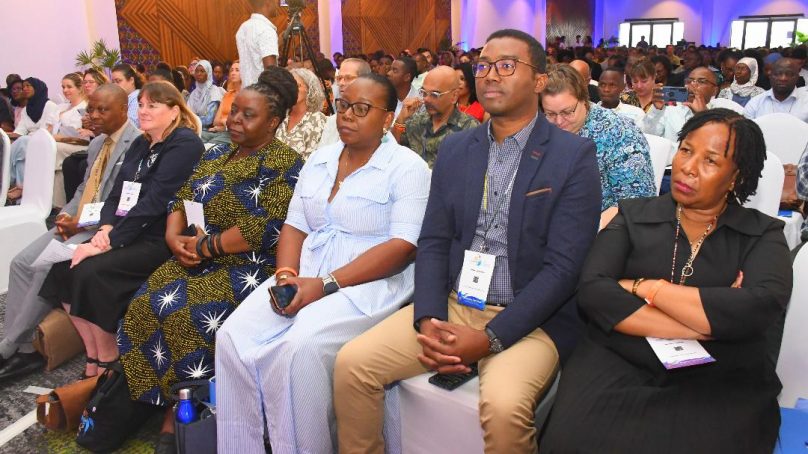
Kenya’s aquaculture sector is on a rapid growth trajectory, emerging as one of the fastest expanding industries in the country.
According to the Director of Aquaculture Research at the Kenya Marine and Fisheries Research Institute (KEMFRI) Jonathan Munguti, cage farming in Lake Victoria and new hatchery systems along the southern coast are transforming fish production into a game-changer.
“With natural fish catches declining globally, aquaculture is the way forward. In Lake Victoria, cage farming has already closed the supply gap, reducing the need for fish imports from countries such as China,” Munguti said.
He said a major milestone has been the establishment of the largest marine hatchery along Africa’s Indian Ocean coast. The facility is producing shrimp, rabbit fish and Marine Corps, supplying fingerlings to community groups in Tsunza, Shimoni (Kwale) and Baso (Kilifi).
“The biggest constraint in aquaculture has always been the lack of reliable seed. Collecting fingerlings from the wild was never sustainable. With the hatchery, we now have a steady supply, a major breakthrough for the industry,” he explained.
KEMFRI is also collaborating with salt farms in Malindi in Kilifi County on aquaculture trials using brackish water, while conducting demand-driven research to address farmers’ needs. Feed development remains a challenge, but the institute is formulating affordable, nutritious feeds using locally available agro-industrial by-products.
“As a research institute, our role is to offer solutions. By providing quality seed and using local resources for feed, we are ensuring aquaculture grows sustainably and benefits both coastal and inland communities,” Dr Munguti added.
At the same time, KEMFRI Chief Executive Officer Paul Orina urged Western Indian Ocean countries to strengthen joint efforts in protecting marine ecosystems from pollution, overfishing, and habitat destruction.
“The ocean knows no boundaries; marine life requires no visas. If Kenya enforces plastic ban and sustainable fishing but our neighbours don’t, the problem persists. We need a regional approach to save our marine wildlife and fragile ecosystems,” Orina said.
He cited plastic waste, oil spills and illegal fishing as pressing threats. While Kenya has banned single-use plastic carrier bags, Orina stressed the need for more responsible management of other plastics. He suggested incentives for community-based plastic collection and centralised disposal systems.
On fisheries, Orina noted that although Kenya’s Exclusive Economic Zone (EEZ) holds rich stocks, small-scale fishers lacked capacity for deep-sea exploitation.
“We encourage fishers to form cooperatives. With stronger bargaining power, they can access financing and acquire larger vessels for sustainable deep-sea fishing, creating jobs and improving livelihoods,” he said.
He further emphasised the importance of science, technology and innovation in marine research. KEMFRI is adopting artificial intelligence, machine learning and digital data systems to better monitor and manage marine resources.
“Research is costly but essential. As a country and as a region, we must stop being mere consumers of innovation and become producers of solutions that safeguard our oceans,” he said.
- A Tell Media / KNA report / By Chari Suche







